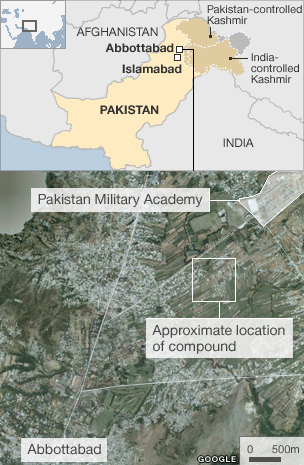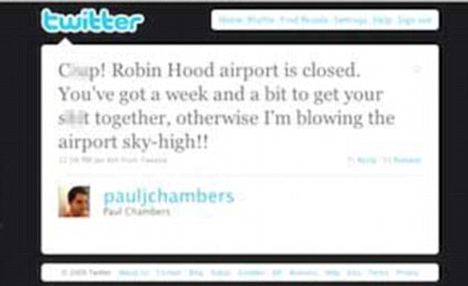Some whackjob so-called “libertarian” thinks that the TSA is out of control. No, really, he actually thinks that the TSA is out of control:
Americans can be murdered by terrorists, but shared values cannot be destroyed by guns and bombs and planes. Yet our adversaries in the “War on Terror” can most certainly win. They can win by frightening us into infidelity to our values, into betraying our best selves. Some would argue that they are already winning by that measure.
I thought that the “if x, then the terrorists have won” meme was dead before the end of the Bush administration.
Of course, if you recruit on pizza boxes, you’re not going to wind up with Elliot Ness. You’re going to get people who use the body scanners to make fun of people’s genitals, pretend to find cocaine in passengers’ luggage as a prank, steal from carry-ons, and generally act like badged choads. Oh, and sex offenders. Don’t forget the sex offenders. A security checkpoint is Walt Disney World for them.
See what I mean? This “libertarian” is objecting to the peaceful re-integration of former sex offenders into steady well-paying government jobs. One of the best success stories of the criminal justice system, and he’s criticizing it just because a few whiners don’t want to be molested as part of their travel routine?
Now, however, the TSA might possibly have found a way to startle the herd into genuine anger and defiance. The TSA has rolled out its program requiring you to submit to either a body-revealing scan or a gropefest patdown. Between revealing full-body scanners and the alternative “enhanced pat-downs,” Americans are as close as they have been since 9/11 to calling bullshit on the ever-increasing Security Theater. Is the TSA managing that anger well? Of course not. Some of them smirk that we like it. Still others are clearly furious that the cows are no longer, well, cowed. There are increasing reports that the enhanced pat downs are being threatened, and used, in an angry and retaliatory fashion by government employees who are upset that we don’t want our practically naked bodies displayed on scanners.
Look, the scanners are a labour-saving device. That’s all. Forcing them to caress your buttocks, squeeze your breasts, and manipulate your genitals is extra work for them. You should be grateful for the extra individual attention they’re providing to you!
Well, okay, the scanners are also a really handy source of humour, but that’s just a fringe benefit. How can you complainers be so unsympathetic to the working TSA folks who just want an occasional laugh while they check out your physical assets (or, more often, lack of).
Of course TSA agents are angry when you don’t herd obligingly through the scanner. They feel entitled to it, as a matter of right, based on what the modern Security State envisions that Americans should be. When the TSA expressed angst that “unquestioning compliance has diminished”, it was tipping its hand.
Yes, but you have no right to complain. When you buy an airline ticket, you implicitly give up all of your rights. Flying is a privilege, and you’d better show how grateful you are to be given that privilege or it will be taken away from you. Don’t be disrespectful: avert your eyes and don’t challenge the screeners. Obey orders at all times, and report those who grumble to the proper authorities. Don’t step out of line, or you will face the consequences.
The purpose of Security Theater is to convince us that the government can do something and is doing something, and most importantly to make us accept “unquestioning compliance” with government as an American value. The purpose of Security Theater is to normalize submission.
And you have to admit that it’s done a pretty good job. And, even better, it has had bipartisan support in congress.
In a nation in which we owe fidelity to shared values, accepting unquestioning compliance with government is like sneaking out on the wife and kids and nailing the smeared-lipstick cosmo-addled skank at the sleazy bar in the next town. And don’t come crying back to your wife Liberty and your kids Personal Responsibility and dear little Individuality when you pick up a nasty case of authoritarianism oozing from your — ok, I’m going to have to pull this literary device over and walk.
He references a blog post by “Mom” which I linked to from this post last week.
Now, I’m not saying that Mom is herself a perverted thug, like the people she’s saying we should just obey. I’m saying that she’s a sneering, entitled apologist for perverted thugs — and for the canine, un-American value of slobbery submission to the state. Even though she concedes that the groping is retaliatory bullshit, and even though she has no basis to assert that Security Theater actually increases real security, she’s deeply resentful that people are not putting up with it. Her righteous anger — like the anger of of the TSA thugs groping just a little bit harder to punish you for saying no to the body scanner — is the result we should expect from the small-time thugs whose identity is tied up in their petty authority.
Throughout my career — both as a prosecutor and as a defense attorney — I’ve observed a consistent inverse relationship: the more petty a government officer’s authority, the more that officer will feel a need to swagger and demand that you RESPECT HIS AUTHORITAH. Your average FBI agent might search your house based on a crappy perjured warrant, invade your attorney-client emails, and flush your life down the toilet by lying on the stand at your mail fraud trial. But he doesn’t feel a need to vogue and posture to prove anything in the process. He’s the FBI. But God above help you when you run into the guy with a badge from some obscure and puny government agency with a narrow fiefdom. He and his Napoleon syndrome have got something to prove. And he’s terrified that you’ll not take him very, very seriously. When I call FBI agents on behalf of my clients, they’re cool but professional and nonchalant. When I call a small agency — say, state Fish & Game, or one of the minor agency Inspector Generals — they’re hostile, belligerent, and so comically suspicious that you’d think I was asking for their permission to let my client smuggle heroin into the country in the anuses of handicapped Christian missionary orphans. They are infuriated, OUTRAGED, when a client asserts rights, when a client fails to genuflect and display unquestioning obedience. They are, in short, the TSA.
See? See? Just wait until this guy tries to fly somewhere . . . they’ll subject him to the most degrading procedures they can imagine. No, not to get back at him for all this disrespect . . . they’ll just treat him like the rest of the cattle. Mooo.

 More details are emerging of how al-Qaeda leader Osama Bin Laden was found and killed at a fortified compound on the outskirts of Abbottabad in north-west Pakistan.
More details are emerging of how al-Qaeda leader Osama Bin Laden was found and killed at a fortified compound on the outskirts of Abbottabad in north-west Pakistan.


